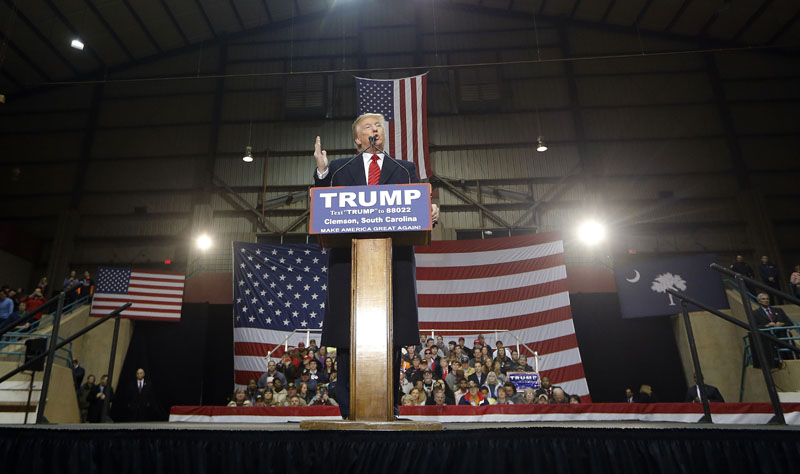Clinton, Sanders to debate as focus turns to minority voters
COLUMBIA: Democratic presidential candidates Hillary Clinton and Bernie Sanders debate again Thursday night as the focus turns to minority voters influential in contests later this month in South Carolina and Nevada.
Clinton's loss to Sanders in the New Hampshire primary by 22 percentage points was especially painful because she lost with women, her presumed base of support as she tries to become the country's first female president.
With Nevada next, Sanders now faces a test of how he does with non-white voters after the largely white states of Iowa and New Hampshire. Nevada is 28 percent Latino, 9 percent African-American and 8 percent Asian-American.
The Vermont senator's message of economic and social inequality, systemic racism and unlimited money in politics is aimed at Americans who feel the system is stacked against them.
Clinton has acknowledged she has "work to do" to introduce herself to young women and new voters. She is expected to attack Sanders more aggressively on issues that matter to minority voters, defending policies like the health care law achieved by President Barack Obama, the nation's first black president.
She'll also probably go after Sanders for casting her as a tool of Wall Street who is not as serious as he about controlling money in politics. And Clinton's not likely to stop hitting Sanders on his opposition to longer waiting periods for gun purchases.
Sanders is expected to talk at length about the civil rights activism of his youth, his recent outreach to prominent black figures and parts of his agenda that might most resonate with black and Hispanic communities. He had breakfast with civil rights leader the Rev. Al Sharpton on Wednesday.
In the more crowded Republican field, South Carolina is next. Billionaire Donald Trump, fresh from a commanding win in New Hampshire, will be tested by the state's more conservative voters.
Texas Sen. Ted Cruz, the conservative firebrand and victor in the leadoff Iowa caucuses, returned to the center of the action after largely sitting out New Hampshire. He drew contrasts with Trump as he spoke in South Carolina.
"We love God, we're gun owners, military veterans and we're fed up with what's happening in Washington," Cruz said.
Almost all the Republicans have spent months building complex campaigns in South Carolina. After that primary on Feb. 20, seven Southern states including Georgia and Virginia will anchor the Super Tuesday primaries on March 1.
Trump was leading in South Carolina among all demographic groups, an NBC/Marist/Wall Street Journal poll showed, with Cruz and Florida Sen. Marco Rubio a distant second and third.






